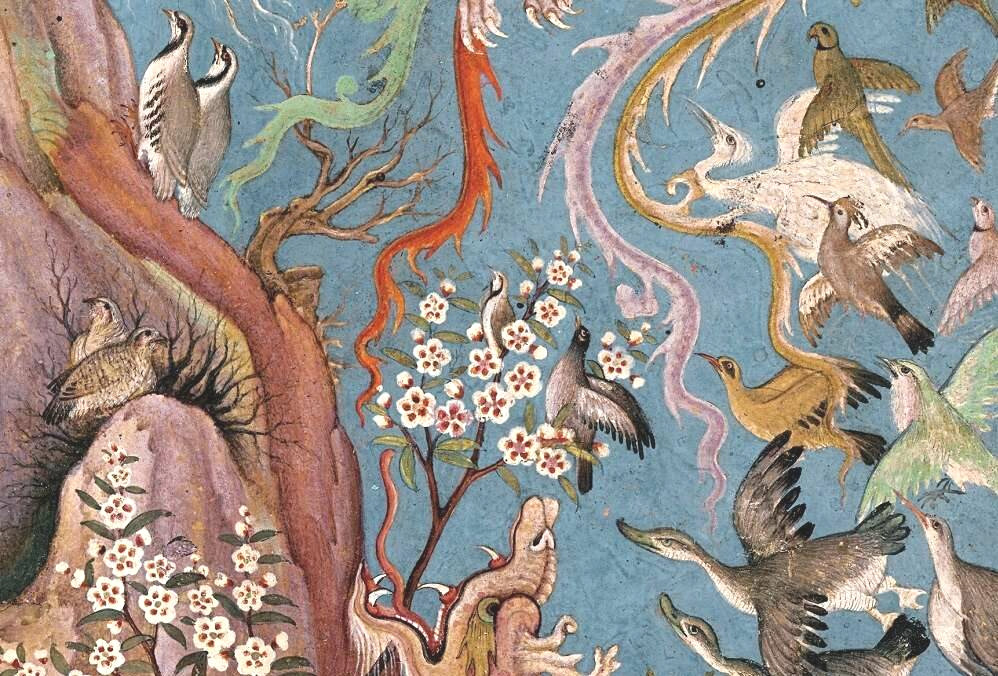You Are Drinker and You Are Wine: Writing with the South Asian Sufis
with Shankar Narayan

All Levels | Sufi poetry and music make a magical space in which lover and beloved engage in an eternal dance, yearning towards union with the divine. While Rumi is likely the best known Sufi poet in the West, South Asian Sufis such as Amir Khusrau, Baba Bullhe Shah, Ghulam Farid, and many others are equally deserving of acclaim in their own right, creating ecstatic poetry that has stood the test of time. Sufism—a mystical form of Islam focused on the direct experience of divine love—has an intensely felt and achingly beautiful poetic tradition that has evolved over many centuries, creating a unique vision of supreme reality. In this tradition, to have truly loved is to have truly lived—and its poetics offer a small taste of that ecstasy.
In this part-analytical, part-generative intensive, we’ll engage the inspiring work of these multi-talented poets though reading, watching, and listening, including qawwali musical performances that are an integral part of this living tradition. We’ll look at works from the earliest centuries of Sufism in South Asia, all the way to present-day poets writing in this storied tradition. And we’ll use the sparks of these voices, passed down over nearly a thousand years, to generate our own inspired writing.
This course is for writers in any genre, of any experience level, and of any (or no) particular spiritual or faith background. In each class, there will be discussion of individual poems and broader Sufi concepts; opportunities to write with one or more inspiring prompts; and space to share our own work with one another. Writers will leave with a newfound understanding of Sufi poetic traditions, resources for doing deeper dives into this inspiring body of work, many new writing starts, and a new community with which to continue their exploration.
This Class is About
- Understanding and tasting the voice of divine ecstasy in South Asian Sufi writing through reading poems and commentary, as well as listening to sung and spoken pieces
- Gaining knowledge of the Sufi philosophies that underpin these pieces, giving writers outside this tradition a glimpse of works they might not otherwise encounter
- Generating our own inspired writing through listening to qawwalis, doing deep reads of particular pieces, and writing in community and on our own, generating strong, electric new work
- Creating a community of writers that can energize and share and support one another, both within and outside class
Syllabus
This class will meet on Zoom Tuesdays from 7-9 P.M. U.S. Eastern Time.
Class 1: The Beloved Mirror: Sufism and Qawwali in the South Asian Context
- Intro to Sufism in South Asia
- Connections with bhakti poetry
- Intro to qawwali
- Selected poems
Class 2: The Flower Reseeded: Persian and Hindavi Origins
- Sheikh Abdullah Ansari (Persian)
- Sanai Ghaznavi (Persian)
- Abdur-Rahman Jami (Persian)
- Sarmad (Persian)
- Amir Khusrau (Hindavi)
- Kabir (Hindavi)
Class 3: A Wider Blossoming: The Punjabi Sufis
- Baba Bullhe Shah (Punjabi)
- Sultan Bahu (Punjabi)
- Waris Shah (Punjabi)
- Ghulam Farid (Saraiki/Punjabi)
- Mian Muhammad Baksh (Punjabi)
Class 4: The Garden of Truth: Regional Languages, Newer Traditions
- Lal Ded (Kashmiri)
- Shah Abdul Latif Bhittai (Sindhi)
- Shah Niaz (Persian, Urdu, Hindi)
- Hazrat Inayat Khan (Urdu and English)
- Contemporary South Asian Sufi-inspired poetry
Student Feedback for Shankar Narayan:
Shankar Narayan is a good teacher. He is knowledgeable about the subject and provided us with appropriate instruction and examples. I would take another one of his classes.

